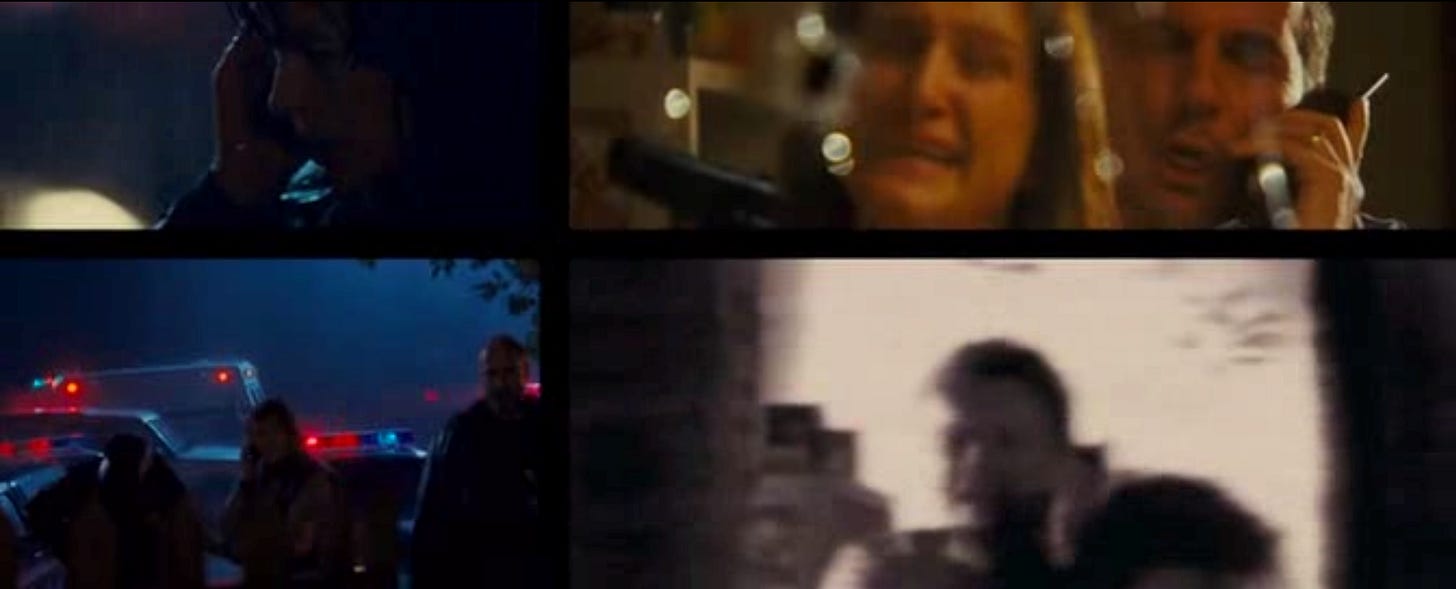The Fourth Kind (2009)
"It’s smiling. I don’t like it when it smiles."
Two months after her husband is murdered beside her in their bed, psychologist Abbey Tyler is trying to pull the pieces of her life together. Haunted by the fact that she is unable to remember the face of her husband’s killer, she feels compelled to continue the couple’s research into the widespread sleep disorders being experienced by the residents of Nome, Alaska. After one of her patients kills his family and himself following a session in which she used hypnosis to uncover suppressed memories, Abbey enlists the help of friend and colleague Abel Campos and ancient religion specialist Prof. Awolowa Odusami to uncover the shocking truth behind her patients’ and her own experiences, as well as the ongoing deaths and disappearances in the town.
The Fourth Kind, directed and written by Olatunde Osunsamni, is an exceptional example of a movie which does things both incredibly well and unexpectedly poorly. Building on the found footage film trend which started with The Blair Witch Project (1999) and continued with Paranormal Activity (2007), REC (2007) and Cloverfield (2008), The Fourth Kind is a pseudodocumentary which expertly combines “archival” black and white video from (among other sources) interviews and therapy sessions with the “actual” Dr. Tyler (played by Charlotte Milchard) alongside reenactments and interview audio with Milla Jovovich as Dr. Tyler.
The visual impact of this presentation cannot be overstated. The constant transitions between the different visual and auditory components, compounded by the stark differences in voice and appearance in Milchard and Jovovich, makes the story much more believable than it otherwise would be. Their voices often overlap and the screen splits into footage from different points of view and from various times, with frames appearing and disappearing, growing, shrinking, and sliding away as the focus of the scene changes. It’s difficult to imagine a more beautiful dance of script, filming and editing, and what makes it all the more surprising is that the story is a steaming pile of crap.




I’m totally on board with the alien abduction plot, and the hazy yet very frightening memories of the owls/not-owls. I’m equally excited and suckered in by the possession of the hypnotized subjects by godlike intelligences who speak in a language that has been dead for millennia. The depiction of these scenes is chilling and convincing. As the video picture becomes increasingly distorted, we see giant spacecraft overhead and hapless victims twist, contort and levitate as if being manipulated by insanely powerful and malicious forces. The scene in which Jovovich is subjected to alien experimentation made me squirm like a six-year-old that doesn’t want to be hugged. But putting these two ideas to gather is just too much. Assuming this powerful alien race did come to Earth 6,000 years ago and have a major influence on ancient Sumerian culture, can we really swallow that they’re still around and feel the need to pluck scores of people away from Nome? What could they possibly have left to figure out about us? If they were that powerful, why would they give a rat’s ass what a frail, whiny head-shrink is up to in Alaska?
Yet, I love this movie. I just drink it all up, stupid narrative and all. I wish this movie was three times longer than it is. I want a bloody franchise. Why? Because everybody brought their A-game.




The acting is unbelievably good in this film. Charlotte Milchard looks and sounds as if she’s been utterly eviscerated by the experiences she’s had. Milla Jovovich is outstanding as a woman who is struggling to hold what’s left of her family together while her personal journey inevitably leads her to ruin, and the scene in which she confronts the truth behind her husband’s death is horrifying both for her and the audience. Will Patton (as Sheriff August) is superb as a man who is trying to be compassionate but is betrayed by his own inflexibility and lack of imagination. Elias Koteas is predictably skillful in his role as Dr. Abel Campos. The primordial fear he displays when he admits his inability to reconcile what he knows has happened to him with what he believes is possible is chillingly palpable. Finally, a special mention for Raphael Coleman as Ronnie Tyler, Abbey’s son. His distance from and frustration with his mother is heart-wrenching in its honesty, and his final scene in this movie is devastating in its logic and maturity. Unfortunately, Hakeem Kae-Kazim isn’t given much to do dramatically in his role as the academic Awolowa Odusami. He’s there throughout, and he’s abducted along with Abbey and Abel, but for some reason we see their pain and confusion, but not his. It stands out, and I can’t help but wonder what was left on the editing room floor.
I often wonder how multi-million-dollar movies (this one came in at a cool $10 million) with gigantic plot holes actually make it to the screen. The Fourth Kind surprises in that it has what would otherwise be considered a fatal flaw, but still succeeds beautifully. Given the number of truly crappy movies around, I’ll take a flawed gem like this anytime.





